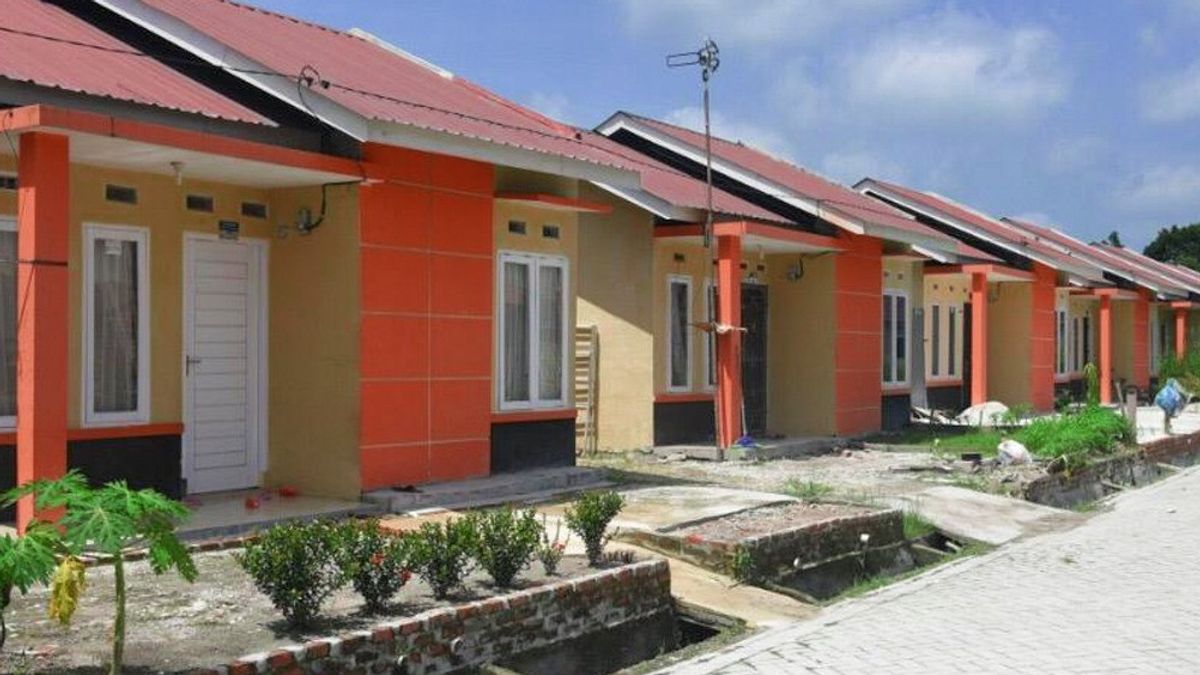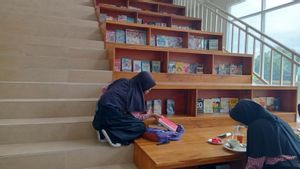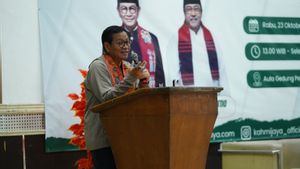JAKARTA - The Confederation of Indonesian Workers Unions (KPBI) considers that Tapera is not at all right for the working class. Because, based on PP No. 25/2020, workers' wages will be cut by 2.5 percent for housing savings. In fact, the fulfillment of basic needs is the obligation of the state, without exception meeting housing needs.
KPBI Chairman Ilhamsyah said what could be seen from the Tapera policy was the state's hands-off efforts to fulfill the people's basic needs. After not taking full obligations in the health sector, this time the state also withdrew from the obligation to fulfill public housing.
In fact, said Ilham, Article 28 H paragraph 1 of the 1945 Constitution which emphasizes that everyone has the right to live in physical and mental well-being, residing and having a good and healthy living environment and the right to obtain health services.
"The constitution clearly states that a place to live is a 'right', not any other mention. Of course, rights cannot be turned into a payment obligation, as requested by Tapera," he said, in a written statement received by VOI, Thursday, June 4.
According to Ilham, Tapera is present in the framework of attracting public funds, instead of using state resources to meet public needs. In Tapera, the role of the state is only to collect funds from the people, the management authority and make public funds for profit-oriented goals, as the corporate logic works.
"The state's obligation to fulfill housing is precisely borne by the working class. Even in a business context this does not seem reasonable, where the public, which is the main support for the source of funding, does not even have any shares or authority over BP Tapera," he explained.
Will Hit the Purchasing Power of WorkersAccording to Ilham, a levy of 2.5 percent of the wages for workers is a blow to the purchasing power of workers. These additional levies will erode the value of wages, especially since the scale of wage increases has long been hedged by Government Regulation Number 78 of 2015.
"The issuance of Government Regulation Number 25 of 2020 concerning the Implementation of Tapera in the midst of the COVID-19 pandemic, also shows the government's indifference to the condition of the people in general and the working class in particular," he said.
Ilham assessed, it should have been during difficult times like now, it is fitting for the state to give more of a helping hand to facilitate the lives of the people, not just pulling rupiah notes from people's pockets.
Furthermore, Ilham said, so far the state has continued to intensify the withdrawal of funds from the public, which in effect is to throw the burden of the crisis on the back of the people. From rising electricity costs, not lowering fuel prices, to expanding the application of taxes.
"The Government Regulation regarding Tapera is not excessive if it is interpreted as a continuation of the intensification of withdrawal of funds from the public to overcome the APBN deficit," he said.
Do Not Believe in Public Fund GovernanceKPBI rejected Tapera because there were references to poor governance of public funds by bodies appointed by law. In May, the Supreme Court (MA) canceled the increase in BPJS Health contributions set by the government.
Supreme Court stated that the government should not burden the public for the deficit of BPJS Health. The Supreme Court views that the deficit occurs due to mistakes and fraud in management. The foundation of the MA is stated in the Decision of the Supreme Court (MA) Number: 7 P / HUM / 2020.
"What this Supreme Court stated shows that the government has not been able to fix the poor performance of agencies managing public funds. Withdrawal and management of new public funds such as Tapera, should be watched out for will encourage the recurrence of bad management practices, harm the people and add new problems in the future. , "he said.
Ilham assessed that Tapera will not provide long-term benefits for the people, on the contrary, it will only become a new problem area, so that in the end the people will return to being the object of sufferers.
Take advantage of State ResourcesAccording to Ilham, the government should be able to use state resources to build change for workers. The people's need for housing is an important and serious issue. At the end of 2016, the Ministry of Public Works and Public Housing said that housing needs for the people reached 1.2 million units per year.
"Then how should the state answer these needs? For us, there are several steps that must be taken. First, restoring the role of the state in meeting the basic needs of the people. The state must not let go, or find other ways to avoid this obligation," he said.
Furthermore, Ilham said, the state must use all the resources it has, not only to make the people have proper housing, but also to improve welfare and improve the quality of life of the people as a whole.
Second, he continued, to build an industrial area that is integrated with the basic needs of workers. So far, industrial estates have not been built to simultaneously meet the needs of workers, such as housing and other public facilities. The industrial area contains only factories and business buildings.
"The state must take this step, obliging the construction of workers' housing in industrial areas. The burden of this financing can be imposed either on the private sector or withdrawn from other sources of funds, such as BPJS Ketenagakerjaan," he said.
As is known, until 2019 alone BPJS Ketenagakerjaan funds have exceeded IDR 431.9 trillion. In the same year, the investment return of BPJS Ketenagakerjaan was Rp29.2 trillion. Investments are made using main instruments such as debt securities, which account for a 61 percent share, 19 percent shares, 10 percent deposits and 10 percent mutual funds.
"BPJS Ketenagakerjaan should start diverting investment and channeling profits to the direct fulfillment of workers' needs. The amount of funds available and the profits generated must begin to be diverted, one of which is to build free or at least very cheap housing for workers," he explained.
The English, Chinese, Japanese, Arabic, and French versions are automatically generated by the AI. So there may still be inaccuracies in translating, please always see Indonesian as our main language. (system supported by DigitalSiber.id)









